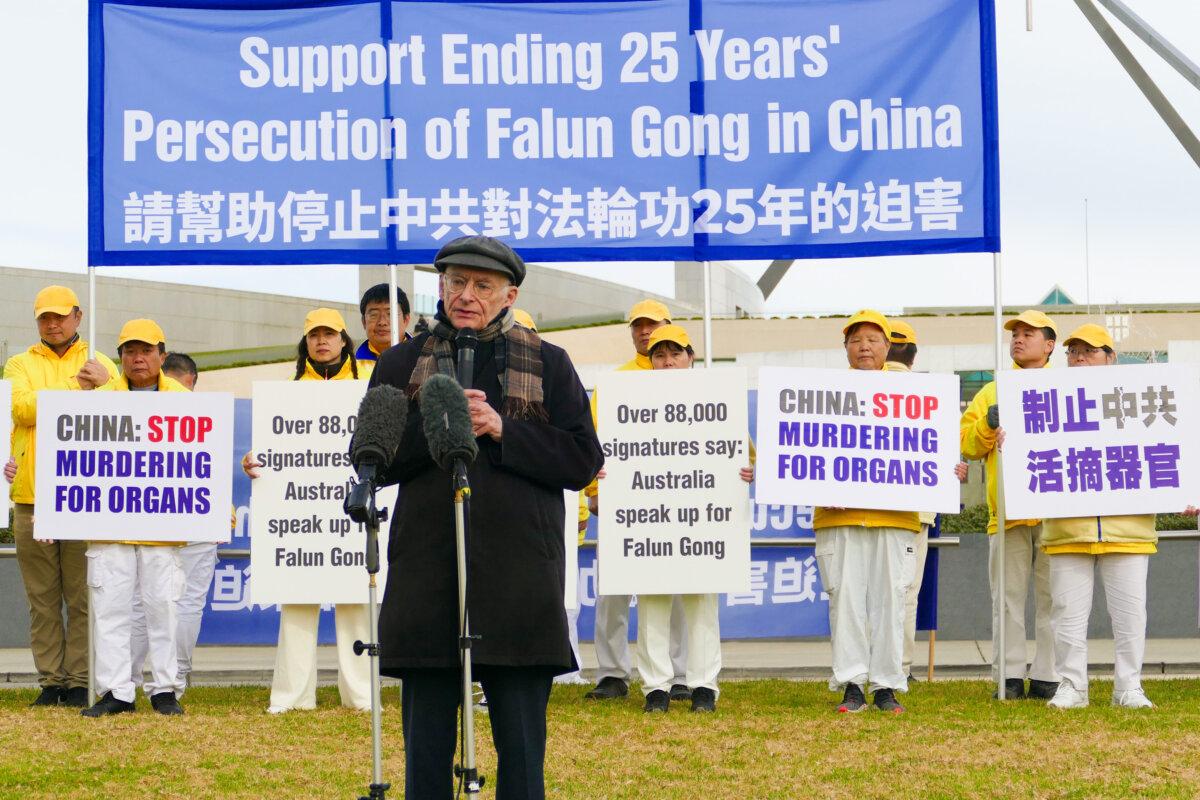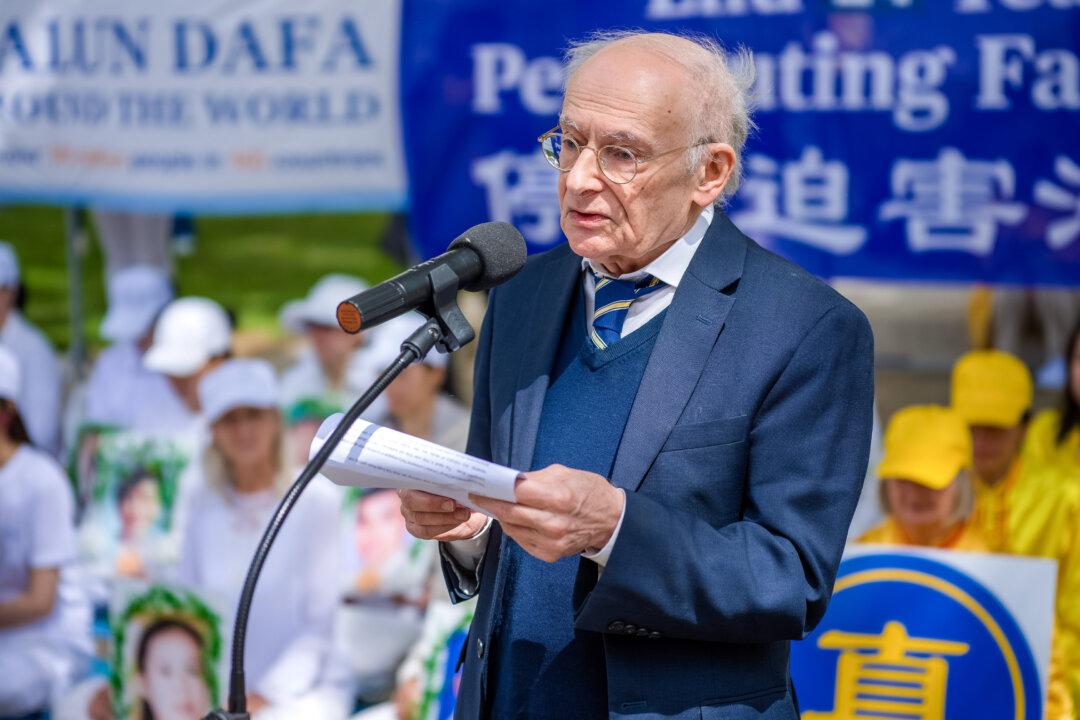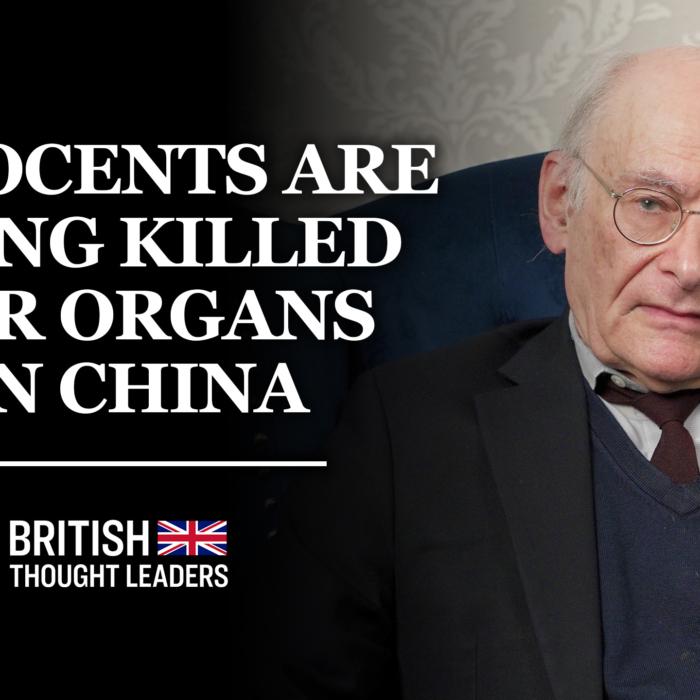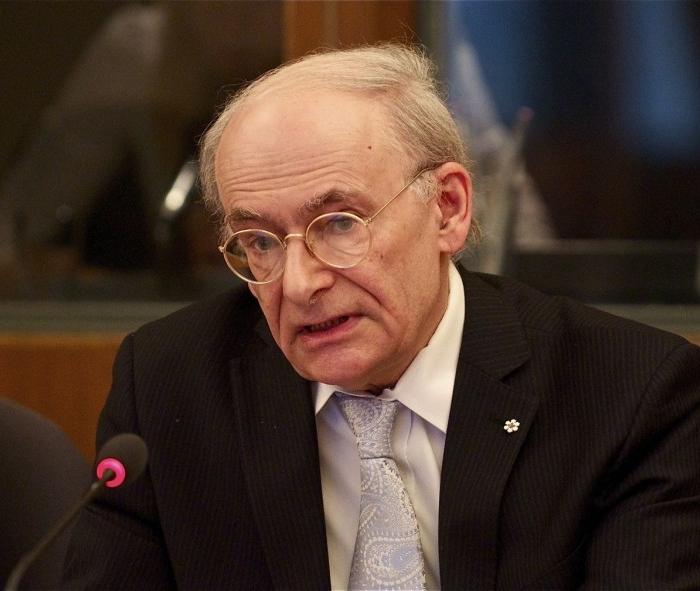International human rights lawyer David Matas has remarked that the progress to end the Chinese Communist Party’s (CCP) practice of forced organ harvesting has been “very slow.”
Mr. Matas’s work has seen him involved in efforts against apartheid in South Africa, repression under the Soviet Union, and dictatorships in Latin America.
He was the recipient of numerous honours and awards, including the Governor-General of Canada’s Confederation Medal in 1992 and the League for Human Rights of B'nai Brith Canada Midwest Region Human Rights Achievement Award in 1999. He was also appointed a member of the Order of Canada in 2008.
However, Mr. Matas said progress by the free world towards eliminating the Chinese regime’s systemic organ harvesting practice was glacial.
“I’ve been on this file since 2006. It’s 18 years,” he told The Epoch Times on June 4 during his visit to the Australian Parliament. “That’s slow.”
In July 2006, Mr. Matas and David Kilgour, a former Canadian secretary of state and human rights lawyer, published their report, which concluded that state-sanctioned organ harvesting was happening in China.
CCP Sees Falun Gong as ‘Political Enemies’
Falun Gong was widely popular and even celebrated by Chinese officials throughout the 1990s until then-CCP leader Jiang Zemin unilaterally launched a violent campaign as the millennium came to a close.The practice’s popularity and its emphasis on moral values, harkening to China’s Buddhist- and Daoist-steeped culture prior to the communist regime, were perceived as a threat to its atheist ideology.
As a result of the oppression, the past 25 years have seen thousands of adherents sent to prisons, detention centres, mental hospitals, and brainwashing classes while also suffering physical and mental torture, including sleep deprivation, beatings, force-feeding, and sexual abuse.
“The killings eliminate what the Party sees as its political enemies.”
Australia Behind Other Countries, But Can ‘Set an Example’
Mr. Matas said progress had been made in addressing organ harvesting, but the final goal of stopping it had not been reached.“Since that time, there have been changes, and there are a number of countries that have enacted legislation or inhibited complicity in transplant abuse abroad,” he said. “But Australia has not.”
The lawyer listed the stop-start nature of action against China’s organ harvesting.

“There is a Senate bill on data collection through customs declarations, and the Senate committee reiterated its support for the 2018 legislation.”
While Australia is a small country with a smaller impact compared to the United States and Canada, the human rights lawyer emphasised that any country could set an example through legislation and take a united front in addressing these issues.
“I think Australia doesn’t have the global influence the United States does, but they can set an example. The more united their front is on this issue, the more effective it’s going to be,” Mr. Matas said.
Liberal Senator Joins Call for Freedom
Liberal Senator Paul Scarr has also urged the Australian government to intervene in response to the persecution faced by Falun Gong practitioners.He said numerous Australians had reached out to him regarding their persecuted family members.
“Given those representations, I think I had a moral obligation to come out today,” Mr. Scarr told The Epoch Times.
“The essence of it is: when someone is being persecuted for no other reason than their religious beliefs, matters of conscience, then I believe freedom-loving people all over the world have a moral obligation to stand up.
“If there are more voices, if more people are speaking out, the persecution will come to an end sooner rather than later.”







